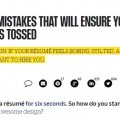
An Early Eulogy and a Not-So-Secret Secret
By Kurt Schmidt In Blog On April 8, 2015
I know a secret, sort of, kind of a scary one. I think once everyone knows what I know, the recruiting business of today will cease to exist. I’m actually surprised this hasn’t happened already but it will, and in my opinion, it probably should. (Though that may leave me flipping burgers somewhere. It’s okay, I like burgers.)
The first time a lot of us (recruiters) thought this would happen was with the advent of job boards like Monster, etc., but instead of killing recruiting, the job boards only created more data and more layers of bureaucracy required to sort through the data, which in some ways highlighted the need for the highly specific type of recruiting that people like me do.
Way back then people thought that information, access to it and the ability to receive lots of it quickly was a good thing, and for some – like all the people who have jobs sorting online applications or the people who design software to do the same thing – it was. Without realizing it though, all of this information forced large companies to spend more money to build infrastructure to deal with it (and then complain about it). Posts on job boards attract thousands of responses. Parsing through them can be a painful and fruitless process (just like submitting them). As a result, impatient hiring managers still call people like me when they get frustrated. Voila! I’m still in business! That was just part one though.
I started thinking about all of this yesterday between re-reading comments on a couple of my previous posts (BS and Free) and reading a really insightful article about squirrels (more on that in a moment). My two posts are about how to deal with “the compensation question” when speaking with recruiters and companies. I still think my guidance is right but the whole thing led me to consider what makes me want to defend the recruiting process (or rather, my own recruiting work). Without dragging my few (thank you!) readers through the whole thinking process, the bottom line is fear, fear that the need for the work I do will erode into nothing someday. And then what?
I’m still pretty comfortable with the value proposition I bring for the type of recruiting I do – today, but that will change. The article I read, “The Demise of Purple Squirrel Hunting” by George Blomgren, does a good job of explaining a big part of why the recruiting industry will change. First, I have to say, I hate terms like “Purple Squirrels” and “Social Recruiting” because they end up sounding meaningless through misapplication and overuse but I get the point, and it’s a good one. George’s article is right and excellently so. How do I know?
Meet R. (let’s call him). He’s a farmer. He’s not really, he’s a senior supply chain management person in the energy industry but what he does is cultivation. I “met” R. nine years ago. He was the first candidate I placed when I got back into the recruiting business in late 2006/2007. I helped him get a job as a Commodity Manager with a very large and well known energy related company. He was promoted several times with that company and ended up as a fairly senior manager with a large staff. We’ve always stayed in touch and talked about different things over the years. One of the things we’ve talked about is why R. will probably never need my services as a hiring manager. He’s a smart guy. R. knows that the real benefit of all of the information we have access to now is not volume but precision. Also he likes people.
R. represents a lot of what George Blomgren wrote about when he discussed “Social Recruiting.” My friend R. cultivates relationships. He uses the same tools I use, which are the same tools a lot of recruiters use, including relying heavily onLinkedIn. I don’t know if R. is hunting “Purple Squirrels,” or if he thinks he is, but I do know that R. is thinking about his organization, the kinds of skillsets he anticipates needing and the types of people he’s interested in meeting and talking to. He’s not just doing this when he has an open position. He’s doing this all the time. I envision him spending an hour or two a week on LinkedIn exploring groups, doing some key-word or position title searches and reading profiles. He posts discussions in groups, he’s starts dialogues and shares information, and, most critically, he’s develops relationships. When he does have an open job, he doesn’t post job ads anywhere. He reaches out to people he knows, either peers or potential candidates and makes them aware of the opportunity. Then he tells his HR support staff about the people he’s talking to and to look out for applications. How simple is that? From where I sit, it’s scary.
The recruiting that R. is doing does not result in a high volume of anything or even a lot of work. It doesn’t require any extra staff, other than the normal HR shared talent staff, nor is there a need for third party resume parsing software or outsourced recruiting centers. There are no advertising costs, no expensive relationships with job boards and, importantly, no outside recruiters. The information that R. trades with his peers, colleagues, potential candidates and networking contacts is better than the usually convoluted information on job descriptions because it is source-to-source and person-to-person direct. R. has credibility too, as George Blomgren mentions as well. As a result, R.’s accuracy is better than even mine so he needs fewer phone and onsite interviews in order to hire – again making his process more efficient.
In addition to all of the above, R.’s process requires less of his time than working on job descriptions with HR, reviewing lots of resumes and online applications, or calling outside recruiters and spending time with them. Because he interviews fewer people with higher accuracy, he also takes up a lot less of his internal colleagues time since they often participate in each others interviews. (In addition to being able to spread the word about some of their needs.) Again, the word is scary.
Why aren’t more hiring managers doing this? Why aren’t more companies exploring this? Are there complications I’m not aware of? R. doesn’t think so. The recruiting he’s doing now is working better than anything he’s done before. I do think more companies will start encouraging this type of recruiting. It has already happened at smaller more nimble firms, who for lack of big recruiting budgets see this as a no-or-low cost alternative. Maybe the only thing missing before larger companies start to embrace this more personal, more direct and more accurate method of recruiting is process standardization, something that can be packaged and repeated. And this is where the smart recruiters might be able to survive and even thrive – by adapting sourcing skills into something that can be taught.
George Blomgren takes a different course in his article. He talks about using better targeted and developed job ads and company identities to attract talent, “fishing” instead of “hunting.” I think the approach is complementary but it still relies on attracting a volume of information and then having to sort through it to get results. The volume of information might be smaller and maybe more applicable but it is still a “volume” and doesn’t take advantage of the type of precision possible through “hunting” or sourcing.
The key to this kind of sourcing is knowing how to do it though and that is a skill, as is the relationship development that goes with it. The question is whether or not companies are ready to develop the skill to make recruiting more personal, direct and efficient. I’m pretty sure I’m not the only one asking but maybe I can offer some help.
A subtle reminder: Starting Thursday, April 9th and continuing until sometime onMonday, April 13th, my book, Modern Job Search will be free to download for Kindle Readers or using the Kindle App on any device (Android, IOS, PC, etc.). Click the link above or this one on Thursday and anytime between then and Monday and you can have my book for free.
If you’re a hiring manager – The networking skills described for job seekers work fine in reverse!
Kurt Schmidt is the author of “Modern Job Search” and the President and Owner of Capto Systems, an executive search firm focused on supply chain and strategic sourcing jobs in manufacturing and energy. He’s also an aspiring photographer and traveler. If you’re really looking for a job, you need this book!








